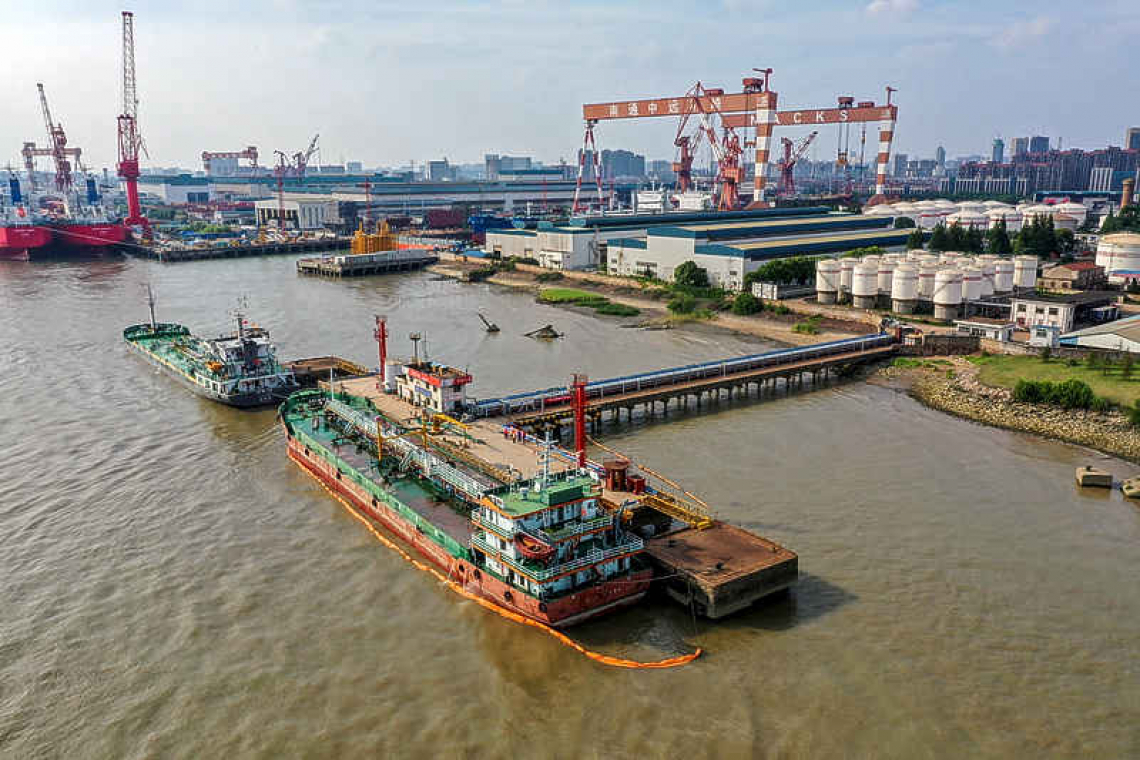SINGAPORE--China is quietly ramping up purchases of oil from Russia at bargain prices, according to shipping data and oil traders who spoke to Reuters, filling the vacuum left by Western buyers backing away from business with Russia after its invasion of Ukraine in February.
The move by the world's biggest oil importer comes a month after it initially cut back on Russian supplies, for fear of appearing to openly support Moscow and potentially expose its state oil giants to sanctions.
China's seaborne Russian oil imports will jump to a near-record 1.1 million barrels per day (bpd) in May, up from 750,000 bpd in the first quarter and 800,000 bpd in 2021, according to an estimate by Vortexa Analytics.
Unipec, the trading arm of Asia's top refiner Sinopec Corp, is leading the purchases, along with Zhenhua Oil, a unit of China's defense conglomerate Norinco, according to shipping data, a shipbroker report seen by Reuters and five traders. Livna Shipping Ltd, a Hong Kong-registered firm, has also recently emerged as a major shipper of Russian oil into China, the traders said.
Sinopec declined comment. Zhenhua and Livna did not respond to requests for comment. The firms are filling the hole left by western buyers after Russia's invasion of Ukraine, which Russia calls a "special military operation."
The United States, Britain and some other key oil buyers banned imports of Russian oil shortly after the invasion. The European Union is finalizing a further round of sanctions, including a ban on Russian oil purchases. Many European refiners have already stopped buying from Russia for fear of running afoul of sanctions or drawing negative publicity.
Vitol and Trafigura, two of the world's biggest commodity traders, phased out purchases from Rosneft, Russia's biggest oil producer, ahead of an EU rule that came into effect on May 15 barring purchases unless "strictly necessary" to secure the EU's energy needs.
"The situation began taking a drastic turn after the exit of Vitol and Trafigura that created a vacuum, which could only be filled by companies that can provide value and are trusted by their Russian counterparts," one Chinese trader, who asked not to be named, told Reuters.
The low price of Russia's oil – spot differentials are about $29 less per barrel compared with before the invasion, according to traders - is a boon for China's refiners as they face shrinking margins in a slowing economy. The price is well below competing barrels from the Middle East, Africa, Europe and the United States.
China separately receives some 800,000 bpd of Russian oil via pipelines under government deals. That would bring May imports to nearly 2 million bpd, 15% of China's overall demand. For Russia, oil sales are helping to cushion the blow to its economy from sanctions.
State-owned Chinese companies, led by Sinopec and Zhenhua, are set to buy two thirds of Russia's flagship Far Eastern export grade ESPO (Eastern Siberia–Pacific Ocean oil pipeline) blend in May, up from a third before the invasion of Ukraine, traders who closely monitor the flows told Reuters. Russia exported about 24 million barrels in May, 6% higher than April.







